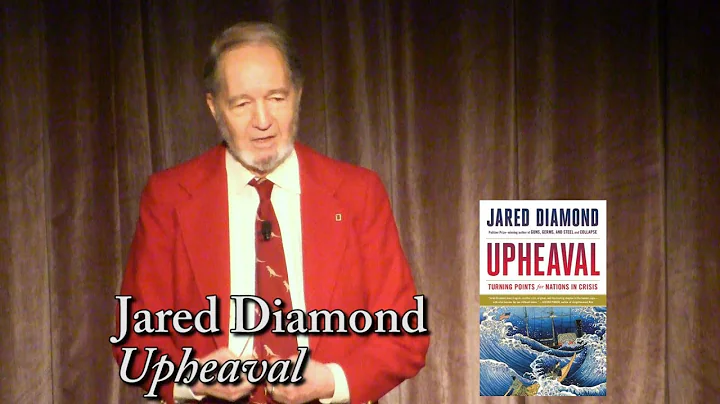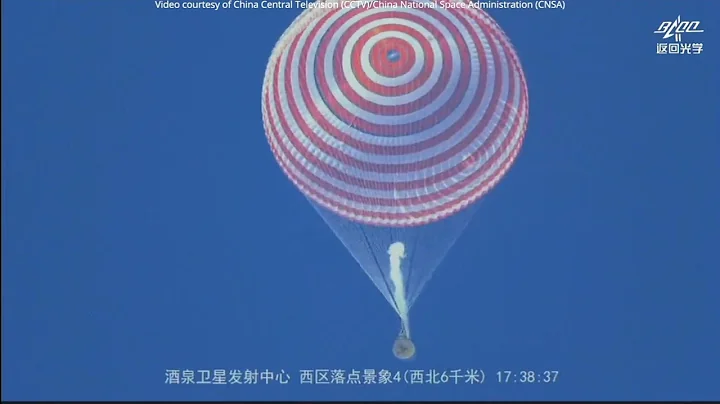Diamond is a professor of physiology at the University of California, Los Angeles School of Medicine. So far, he has written a series of best-selling social science books around the world -
"Guns, Germs and Steel" explores why humans on different continents have developed as they have. Different; " The Third Chimpanzee " discusses the gap between humans and animals; "Collapse" studies why some societies continue to thrive while others collapse; " The World Before Yesterday " compares life in traditional societies with modern societies The differences in life; "Why Some Countries Are Rich and Some Countries Are Poor" explores the key to a country's prosperity; "Upheaval" tells us how modern countries should deal with national crises...

Jared Diamond.
Diamond favored controlled controlled experiments as the only rigorous method of scientific research, and he also applied this method to historical observations. As a scientist who studies the natural world, he attaches great importance to the impact of the natural environment on the evolution of human society, so much so that some people think that his theory is a kind of " environmental determinism ".
However, he believes that it is foolish to use "environmental determinism" to deny the importance of the environment, especially today when environmental problems have become extremely serious.
On different occasions, Diamond has always called for global solutions to the crises facing mankind today, whether it is the climate crisis, the new crown epidemic or the challenge of inequality.
Today, with the international situation in turmoil, globalization since the 1990s is facing a new round of crisis. Is it too optimistic to talk about global cooperation at this time? Diamond has reservations about this and is generally cautiously optimistic about the future of humanity.
As an old man who has experienced World War II and Cold War , he believes that the current world is safer than ever before, and mankind is making continuous progress. Of course, the premise is that we can make the right decision - only by sitting down and negotiating together to deal with the global crisis can mankind have a brighter future.

Diamond Human History Series.
01
It is foolish to use "environmental determinism" to belittle the impact of the environment Hardcore Reading Club: In your books, you often use scientific research methods such as comparative studies and natural experiments to integrate the study of history. How does your background in physiology help you understand human history?
Jared Diamond: In some areas of science, such as the one I work on in physiology, it is feasible, legal, and ethically acceptable to gain knowledge through manipulative laboratory experiments.
But in other fields of knowledge—not just history—manipulative experimentation is impossible, illegal, or unethical.
Astronomers cannot study stars by alternately extinguishing and igniting them, geologists cannot understand glaciers by alternately melting and freezing them, and historians cannot understand the impact of wars on history by stopping wars and starting them: This is very difficult and wrong behavior.
Instead, astronomers, geologists, historians, anthropologists, economists, and most social scientists rely on the natural experiment method: to compare what nature does and does not do, rather than relying on a What scientists in white coats do and don't do in the laboratory.
For example, last year's Nobel Prize in Economics was awarded to three economists because they figured out whether raising the minimum wage for workers would cause companies to lay off workers.

Three 2021 Nobel Prize winners in economics.
These economists have not and cannot force some companies to raise the minimum wage. They compared the fact that New Jersey raised the minimum wage while neighboring Pennsylvania did not, and found that the former did not cause workers to lose their jobs.
This is how natural experiments work. I have used this method for 50 years, starting with my studies of New Guinea birds. I also use this method when studying human society. Hardcore Reading Club: There are many variables that affect the historical process. "Guns, Germs and Steel" emphasizes the impact of the environment on the different historical development trajectories of human society. But some people think that this seems to have a fatalistic tone for different civilizations - due to irresistible circumstances, some civilizations are simply impossible to become more advanced. What do you think about this issue? Is this a form of “environmental determinism”?
Jared Diamond: Obviously, the environment affects the development trajectory of human society, and certain impacts brought by the environment determine how human society will develop.
If you think humans are immune to the environment anywhere, try standing in the North Pole in January wearing only a T-shirt and shorts and try to develop a world-class civilization there.
Admitting this reality is not admitting fatalism, just like admitting 1+1=2 is not admitting fatalism. The Arctic is an extreme example, but a more modest example is that the world's most complex societies did not develop from other harsh environments - such as the Tibetan Plateau or the deserts of central Australia.
Using the pejorative term "environmental determinism" to belittle the influence of the environment is as foolish as using the derogatory term "environmental determinism" to belittle the importance of mathematics, just as using the statement that 1+1=2 is " determinism " is foolish.

"Guns, Germs and Steel: The Fate of Human Society"
[US] Written by Jared Diamond, translated by Liao Yuejuan
CITIC Publishing Group, 2022.1
02
Countries facing crises must always pay attention to social consensus Hardcore Reading Club : In "Collapse," you explore why some societies collapse into themselves. One important point is that a society's ability to adapt to problems may determine our future. In the face of the current environmental crisis, what kind of resilience do we need to avoid social collapse?
Jared Diamond: Here are two different types of resilience that I recommend.
One is to adopt new methods, or to adapt more of existing methods, to prevent undesirable things from happening - for example, to slow or prevent global warming, we need to reduce our reliance on fossil fuels and switch to renewable ones Energy sources such as solar, wind and tidal energy.
Another approach is to devise ways of adapting to the undesirable events that are occurring - for example, as global warming allows farming to occur in high latitudes that were previously too cold for agriculture, such as the Canadian Plains and Siberia south.
This could compensate for reduced agricultural productivity in equatorial regions, which will become too hot and dry.

"Collapse: How Societies Choose Success or Failure"
[US] Written by Jared Diamond, translated by Liao Yuejuan
CITIC Publishing Group, 2022.1
Hardcore Reading Club: In "Upheaval", you learn from how you personally respond to crises, It extends to how a country responds to crises. There are indeed similarities between personal and national crises, but national crises can be much more complex and difficult to deal with than personal crises. Is it too simplistic to put the solution to a personal crisis into a solution to a national crisis?
Jared Diamond: Of course, that's an oversimplification, but it's often a very useful oversimplification.
It is very important for individuals facing a crisis to face the crisis, take responsibility, and do something about it or choose to change; and for a society facing a crisis, it is equally important to acknowledge, accept responsibility, and choose to change. .

"Dramatic Changes: The Turning Point of Human Society and National Crisis"
[US] Written by Jared Diamond, translated by Zeng Chuyuan
CITIC Publishing Group, 2022.1
03
The new crown epidemic is precisely strengthening globalization Hardcore Reading Club: You have said it more than once , in the face of the new crown epidemic, we "need global solutions." Now that the COVID-19 epidemic has lasted for nearly three years, how do you evaluate the results of mankind's fight against the epidemic in the past three years? What lessons can humanity learn from this?
Jared Diamond: It’s easy to fall into the trap of pessimism about the new coronavirus epidemic. Infections are still occurring around the world.
But we should be optimistic and acknowledge the progress we have made in the fight against COVID-19. When the COVID-19 epidemic broke out in December 2019, few people would have imagined that scientists would successfully develop an effective vaccine in less than a year, instead of 5 or 10 years like most diseases.
At that time, some countries or regions restricted social exchanges and thus reduced the incidence of disease; while other countries or regions refused to accept such restrictions, resulting in major outbreaks.
The main lesson we can learn from this global COVID-19 crisis is that such global problems require global solutions.
Hardcore Reading Club: Some people believe that today's rapid industrialization and urbanization, as well as the destruction of the natural environment, have greatly aggravated the frequency of transmission of various hidden viruses to humans, such as AIDS , SARS and even COVID-19. Viruses, etc., this is nature’s revenge on humans. How do you think we should balance the contradiction between the needs of economic development and environmental protection?
Jared Diamond: The reason for the spread of the virus is not the industrialization of mankind, nor is it nature’s revenge on mankind, nor is it other poetic or neo-Lutheran explanations.
Hardcore Reading Club: Some people say that the epidemic is a catalyst for the global situation to become more tense. What do you think? Jared Diamond: "The COVID-19 epidemic is strengthening the wave of deglobalization." This assertion is exactly the opposite of the fact. The COVID-19 epidemic is strengthening globalization because it finally makes us realize that the most serious problems facing human beings today are also the needs of . Global issues that countries around the world are working together to solve include climate change, the depletion of the world's resources and inequality around the world.

Jared Diamond.
04
I am cautiously optimistic about the future of mankind Hardcore Reading Club: What is your vision for globalization? Worried about the future of globalization?
Jared Diamond: I worry about the future of globalization as much as I worry about the future of newborn babies: it’s inevitable! As for countries moving toward more competition, conflict, and war Fantasy, I think, and the people who believe in this fantasy are young people who have never experienced a world war.
I was born in 1937, I grew up during World War II, and I know firsthand the impact that war had on my friends, my country, and other countries. I was 25 when the Cuban Missile Crisis broke out in 1962, and I clearly remember how close the world came to a large-scale nuclear war within a week.
I was living in England in the late 1950s and early 1960s, and people talked to me about their lives and how they were affected by what they called "the Great War," the First World War . and were even more destructive to Europeans than World War II.
Simply put, compared to the recent past, the world now has less of a shadow of conflict and war than it did for much of the last century. Hardcore Reading Club: You are very concerned about environmental issues. You once said that the rate at which Westerners consume resources is unsustainable. It is also impossible for the population of third world countries to reach the same resource consumption rate as Westerners. . If resources are insufficient, conflict is inevitable. However, it seems to be a problem to get Westerners to reduce their resource consumption rate. Do you think there are any ways to make the world more equitable and sustainable?
Jared Diamond: Of course, conflict is not inevitable. If we choose to reduce resource consumption around the world and choose to make the world more equitable and sustainable, then the potential for conflict will be reduced. If richer countries choose to help poorer countries, the world can be made more equitable and sustainable.
This is also in the interest of the richer countries: in a globalized world, as long as there are poor countries and their citizens will be angry at the richer countries, the richer countries will not be safe.
Rich countries can help poor countries to improve their public health conditions at a lower cost by providing finance, technology and trained experts.This would reduce economic inequality, because countries where people are often sick and die young are destined to be poorer than countries where people are generally healthy and live longer.
Hardcore Reading Club: You have witnessed the changes in human society for nearly a century. In these 85 years, what is the most exciting or unforgettable historical event in human society for you? Do you think humanity is making progress?
Jared Diamond: In the past few years, we have not experienced a world war, the use of nuclear weapons , nor the resurgence of Nazi concentration camps.
Yes, humans have made progress in some important ways. Compared with 5 years ago, more people in the world are aware of climate issues and their seriousness, and now more young people are paying attention to the seriousness of other global issues.
Many large international companies that were among the most environmentally destructive forces in the world 20 years ago have now adopted at least some sustainable development policies - because they recognize that adopting sustainable development policies is detrimental to the well-being of their employees and their impact on the environment. The well-being of the company owners' children and to the profitability of the company itself is critical.
These are events in recent years that make me cautiously optimistic about the future of humanity. If we make the right decisions - and that's a big if - we'll be facing a bright future, not a miserable one.













